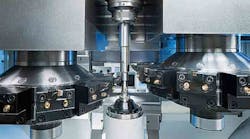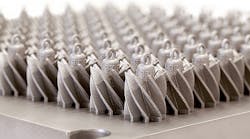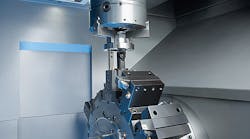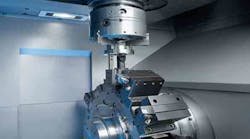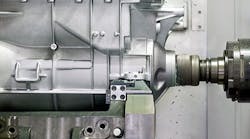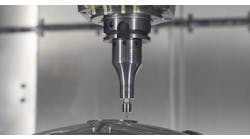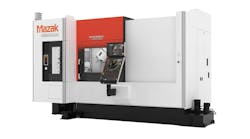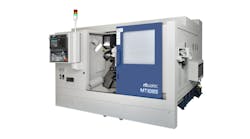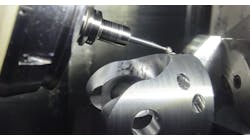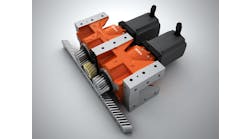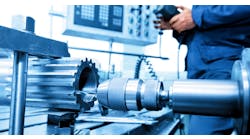Europe’s machine tool manufacturers are reporting mostly positive conditions and optimistic prospects through the first half of 2015, after several years of reduced domestic demand and reliance on export orders. The EU is home to many of the world’s machine tool manufacturing businesses, though those businesses have struggled to maintain a pattern of growth over the past decade. Recently, however, CECIMO reported that European machine tool production increased from €22.7 billion in 2013 to €22.9 billion in 2014, and it estimated that a “cautiously positive mood” in the sector would sustain growth of another 3% this year.
CECIMO is the union of trade associations for over 1,500 companies across the European Union, companies who are responsible for 97% of machine tool production in the region. They also comprise over 33% of the world’s machine tool production capacity.
CECIMO countries exported €18.2 billion worth of machine tools in 2014, marginally less than in 2013, which it attributed to slower economic growth in the emerging markets. “On the other hand, the changes of consumption pattern in those counties and the improving growth outlook in developed markets forecast a growth in our exports this year,” the group reasoned.
Continuing, CECIMO predicted increasing business confidence in the EU would support continuing recovery in investment in machine tool, following a 7% growth (to €13.5 billion) in European machine tool consumption in 2014.
“On one hand, we see growth slowing down in emerging markets, the risks relating to possible Greek exit from the euro zone and the effects of EU sanctions on CECIMO export sales to Russia. On the other hand, we see a solid demand in advanced countries. The weak euro will certainly have a positive effect on machine tools exports. Therefore, our expectations for 2015 are still on the positive side,” explained Dr. Frank Brinken, chairman of CECIMO’s Economic Committee and a director of Starrag Holding Group.
Two of the largest machine-tool trade associations within the EU also have positive mid-year reports. For the second-quarter of 2015, UCIMU – Sistemi per produrre, which represents the Italian machine tool and automation industry, indicated its members recorded a 30% year-over-year increase in new orders for machine tools. UCIMU further noted this result represented the seventh consecutive quarter of new-order increases for Italian machine tool manufacturers: new orders from domestic (Italian) manufacturers have increased 46.7% year-over-year; and new orders from foreign manufacturers have increased 26.1% versus the second quarter of 2014.
“The year 2015 is thus continuing on the path to recovery for Italian manufacturers who, while remaining loyal to their own traditional propensity to export, have been able to fully exploit the upswing of Italian demand for production systems,” commented UCIMU president Luigi Galdabini.
He added that the results “clearly” demonstrate a recovery for Italian manufacturing.
The largest machine tool industry in Europe is in Germany, where the suppliers are represented by VDW (Verein Deutscher Werkzeugmaschinenfabriken / German Machine Tool Builders Assn.), which reported Q2 2015 orders rose 10% year-over-year. That increase included 3% higher orders from the German domestic manufacturing sector, 6% higher orders from the EU, and 16% higher orders from non-EU nations.
These results followed disappointing results in Q1 2015, VDW noted. "After a decline in the first quarter of 2015, orders recovered again in the second quarter. This means that the German machine tool industry has presented a balanced half-year balance sheet," commented Dr. Wilfried Schäfer, VDW executive director.
He said VDW’s members’ machine tool sales remained the same or were slightly up in the first half, but "achieving the 3% increase that was forecast for 2015 now appears somewhat ambitious," Schäfer said.
Such an improvement would require an increase in demand in the second half of the year, particularly with regard to domestic orders, he said. Overall results should remain good because many of VDW’s members’ customers are export-oriented and should benefit from increased price competitiveness thanks to the weak euro.
